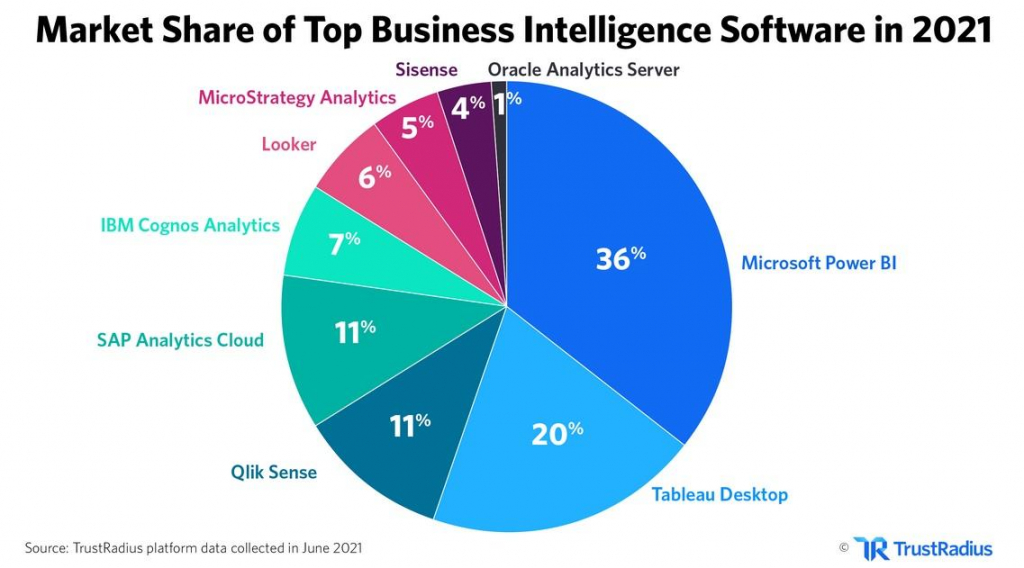
How Business Intelligence Software Drives Business Growth
In today’s rapidly evolving business landscape, organizations are constantly seeking ways to stay ahead of the competition and drive growth. One key factor that can give businesses a competitive edge is the effective use of data. With the vast amounts of data being generated every day, companies need to find ways to harness this information and turn it into actionable insights that can inform strategic decisions. This is where business intelligence (BI) software comes in – a powerful tool that helps organizations analyze data, identify trends, and make data-driven decisions that drive business growth.
What is Business Intelligence Software?
Business intelligence software is a type of application that enables organizations to collect, analyze, and visualize data from various sources, including internal systems, external data sources, and big data. The primary goal of BI software is to provide users with a unified view of their organization’s performance, enabling them to identify areas of improvement, optimize operations, and make informed decisions. BI software typically includes a range of tools and features, such as data visualization, reporting, dashboards, and predictive analytics, that help users to extract insights from data and present them in a meaningful way.
How Does Business Intelligence Software Drive Business Growth?
Business intelligence software drives business growth in several ways:
- Data-Driven Decision Making: BI software enables organizations to make informed decisions based on data analysis, rather than relying on intuition or guesswork. By providing a clear understanding of business performance, BI software helps companies to identify areas of improvement and optimize their strategies.
- Improved Operational Efficiency: BI software helps organizations to streamline their operations by identifying areas of inefficiency and waste. By analyzing data on business processes, companies can identify opportunities to reduce costs, improve productivity, and enhance customer satisfaction.
- Enhanced Customer Insights: BI software provides organizations with a deeper understanding of their customers, including their behavior, preferences, and needs. This information can be used to develop targeted marketing campaigns, improve customer service, and create personalized experiences that drive customer loyalty.
- Predictive Analytics: BI software includes predictive analytics capabilities that enable organizations to forecast future trends and patterns. By analyzing historical data and identifying correlations, companies can predict customer behavior, market trends, and other business outcomes, allowing them to stay ahead of the competition.
- Real-Time Visibility: BI software provides real-time visibility into business performance, enabling organizations to respond quickly to changes in the market, customer behavior, or other factors that may impact their business.
- Identification of New Business Opportunities: BI software helps organizations to identify new business opportunities by analyzing data on market trends, customer behavior, and competitor activity. By identifying gaps in the market or areas of unmet customer needs, companies can develop new products or services that drive growth and revenue.
Benefits of Using Business Intelligence Software
The benefits of using business intelligence software are numerous and well-documented. Some of the most significant advantages include:
- Improved Decision Making: BI software provides organizations with a single, unified view of their business, enabling them to make informed decisions based on data analysis.
- Increased Efficiency: BI software helps organizations to streamline their operations, reducing waste and improving productivity.
- Enhanced Customer Satisfaction: By providing a deeper understanding of customer needs and preferences, BI software enables organizations to develop targeted marketing campaigns and improve customer service.
- Competitive Advantage: BI software provides organizations with a competitive advantage by enabling them to analyze data, identify trends, and predict future outcomes.
- Cost Savings: BI software can help organizations to reduce costs by identifying areas of inefficiency and waste.
Examples of Business Intelligence Software
There are many different types of business intelligence software available, each with its own strengths and weaknesses. Some popular examples include:
- Tableau: A data visualization platform that enables organizations to connect to a wide range of data sources and create interactive, web-based dashboards.
- Power BI: A business analytics service by Microsoft that enables organizations to create interactive visualizations and business intelligence reports.
- QlikView: A business intelligence platform that enables organizations to create interactive, web-based dashboards and reports.
- SAP BusinessObjects: A business intelligence platform that enables organizations to create reports, dashboards, and analytics applications.
- Oracle Business Intelligence: A comprehensive business intelligence platform that enables organizations to create reports, dashboards, and analytics applications.
Implementation and Integration
Implementing business intelligence software requires careful planning and execution. Some key considerations include:
- Data Quality: BI software is only as good as the data it analyzes. Organizations must ensure that their data is accurate, complete, and consistent.
- User Adoption: BI software is only effective if it is widely adopted across the organization. Companies must provide training and support to ensure that users understand how to use the software.
- Integration: BI software must be integrated with existing systems and data sources to provide a unified view of the organization.
- Security: BI software must be secure to protect sensitive business data. Companies must implement robust security measures to ensure that data is protected.
Conclusion
Business intelligence software is a powerful tool that can drive business growth by providing organizations with a unified view of their performance, enabling them to make informed decisions, and identifying areas of improvement. By analyzing data, identifying trends, and predicting future outcomes, BI software can help companies to stay ahead of the competition, improve operational efficiency, and enhance customer satisfaction. Whether you’re a small business or a large enterprise, business intelligence software can help you to achieve your goals and drive business growth.
Closure
Thus, we hope this article has provided valuable insights into How Business Intelligence Software Drives Business Growth. We appreciate your attention to our article. See you in our next article!


